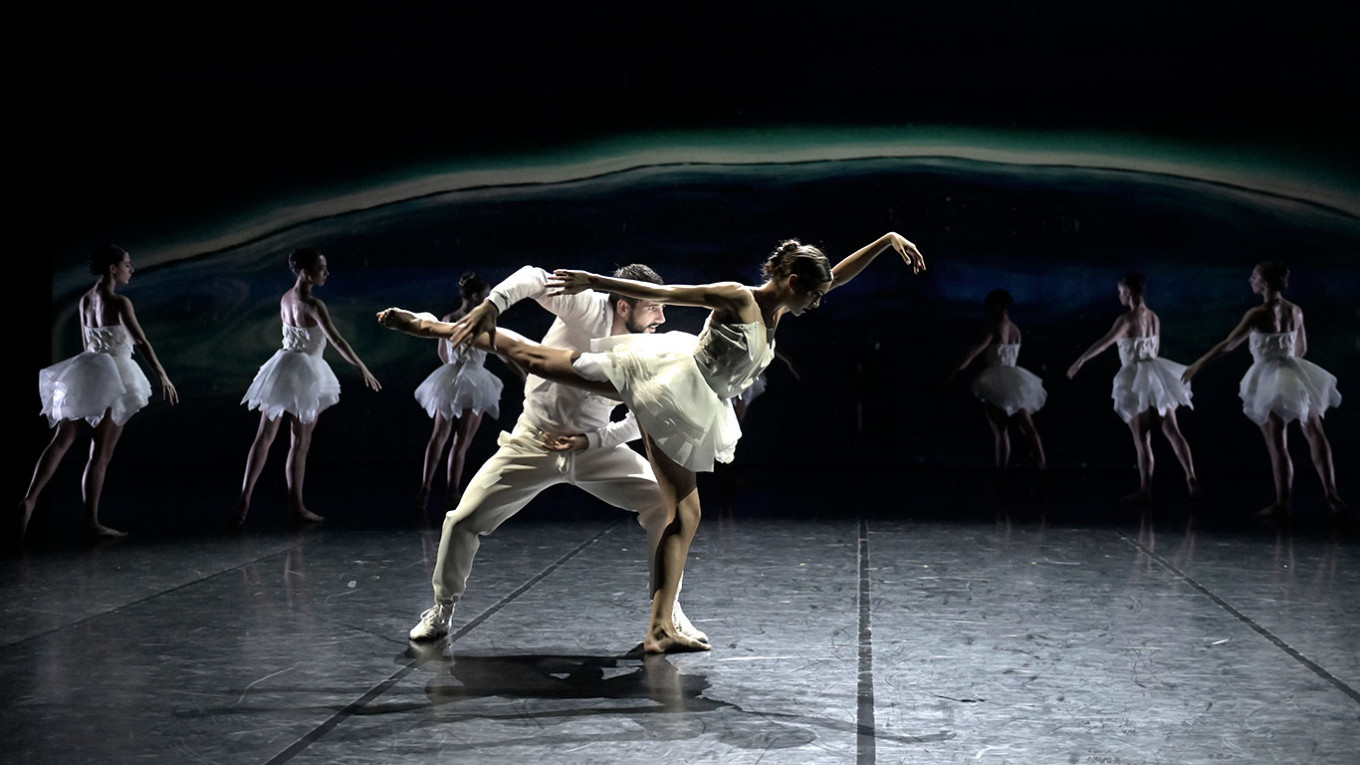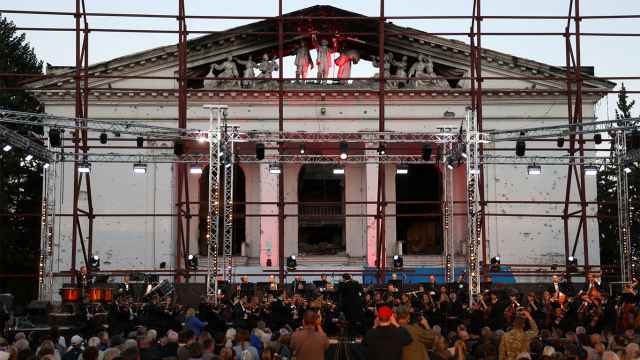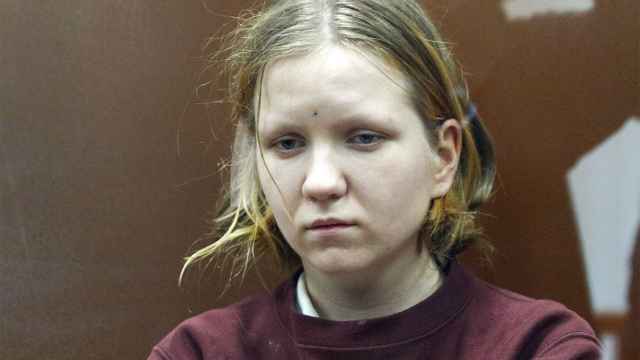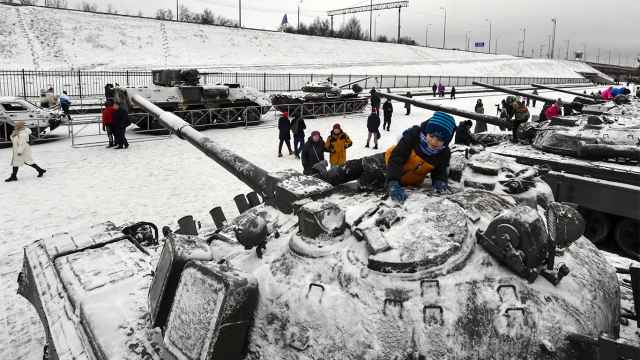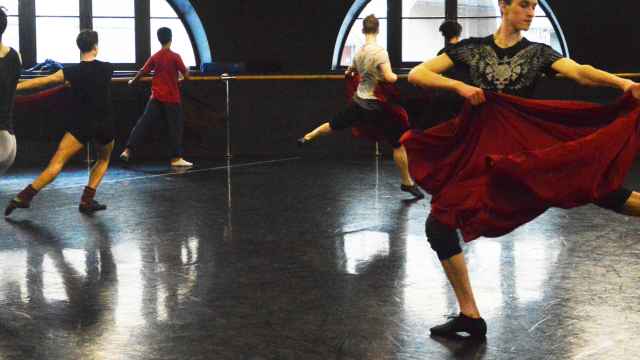On Nov. 11 and 12 in St. Petersburg the Russian premiere of Angelin Preljocaj’s unorthodox rendition of Swan Lake will be performed at the Baltiinsky Dom Theater in St. Petersburg as part of this year’s Diaghilev P.S. International Arts Festival.
One of the most celebrated choreographers of our time, Preljocaj’s productions have become part of the repertoires of some of the world's most distinguished ballet companies, including La Scala, New York City Ballet, Paris Opera, the Mariinsky Theater and the Bolshoi Theater.
In his interpretation of the Swan Lake, he retains the original plot. The story of the beautiful woman transformed into a swan is still there, but Preljocaj changes the context.
“Swans live in the water element, and water is one of the most important elements to sustain life on the planet. Many species of animals and birds have become endangered due to ecological problems related to climate change,” Preljocaj told The Moscow Times.
“My concept of ‘Swan Lake’ revolves around this pressing topic for humanity today. Perhaps for some viewers this subject has so far seemed a bit irrelevant or abstract, so I would like to make more people feel this connection. Each of us is part of nature and bears its share of responsibility for the health and well-being of the planet,” he said.
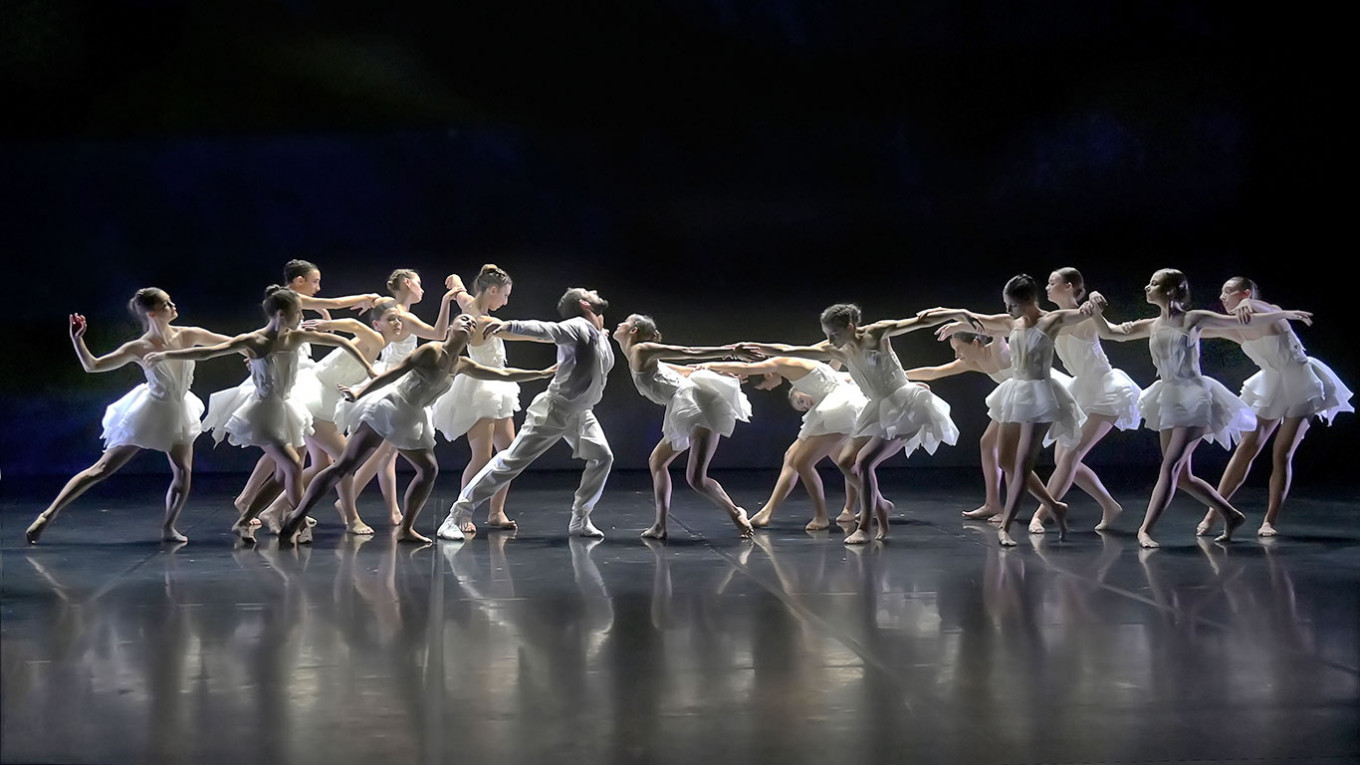
It is not the first time Angelin Preljocaj has brought a socially meaningful context to his ballets.
In his “Romeo and Juliet,” for example, he ridicules bourgeois habits, while in “Les Noces” he makes a reference to the fate of Albanian girls trying to flee their home country at all costs, including getting married to a complete stranger.
In 2019, he went to the famous Marseille women’s prison "Beaumette" and staged a production with five prisoners, aged 21 to 62, who were serving long sentences.
“I am convinced that everyone needs art,” he said, “and I am ready to take a step towards those who really want this encounter, but somehow cannot make their move.”
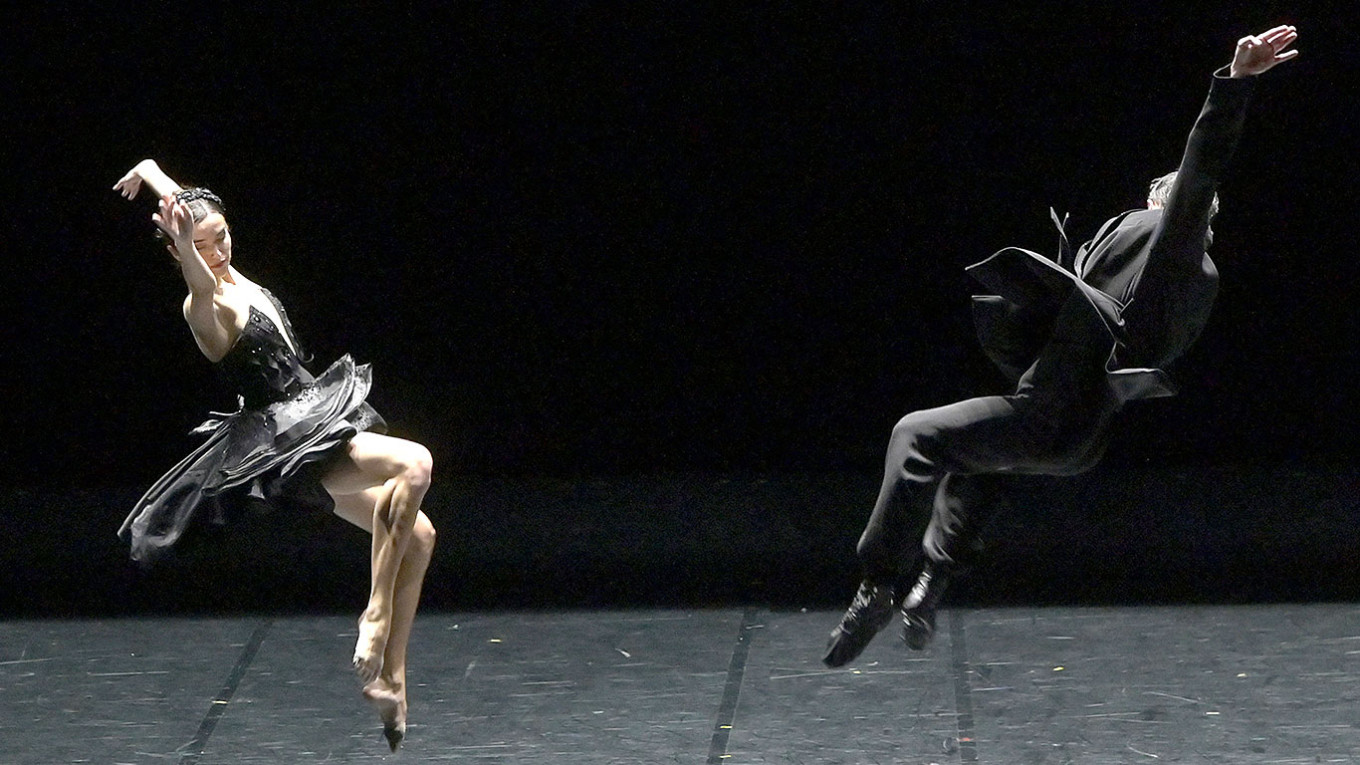
Honoring and transforming the original
Preljocaj first considered his own version of “Swan Lake” when he received an offer from the Diaghilev P.S. Festival in St. Petersburg in 2018 to choreograph a piece to celebrate Marius Petipa’s bicentenary. Preljocaj set his piece to music by Tchaikovsky, and the experience inspired him to take a closer look at the composer's work. “I must admit that Tchaikovsky had not even been on the periphery of my attention until then,” he said. “But soon I really wanted to create my ‘Swan Lake’ based on this brilliant music.”
In the process he said, “The biggest challenge was to put together the whole mosaic that we are talking about and create a ‘Swan Lake’ that will resonate with today's audiences.”
“I really wanted the audience, especially the younger generation, to have a feeling of belonging to this story. I had no intention to tell yet another romantic fairy tale; there is no shortage of such offerings. The pure and fragile image of the swan is a symbol of life on the planet. And if humanity does not stop committing violence against nature, then not only swans but even lakes, will cease to exist for future generations.”
He is not the first — or the last — choreographer to revisit “Swan Lake.” Mats Ek, Dada Masilo, John Neumeier, Matthew Bourne, Alexei Ratmansky and other choreographers have all created their own interpretations of Marius Petipa's masterpiece.
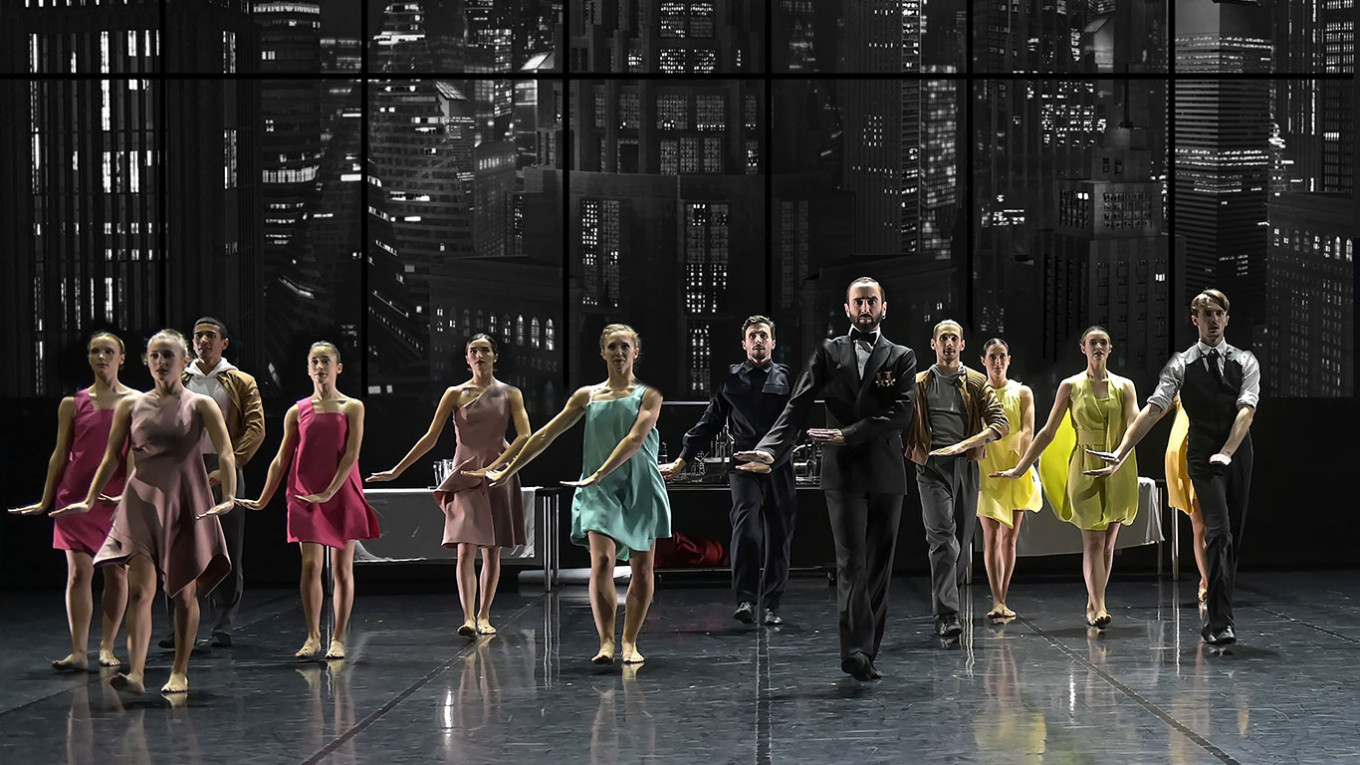
“Petipa succeeded in creating a masterpiece that became synonymous with classical ballet,” Preljocaj said. “If we went out in the street and ask people to name their favorite ballet, I am sure that 'Swan Lake' would be the absolute winner. The drama, the emotional impact and depth of this work are unsurpassed, and so, naturally, it also appeals to contemporary choreographers.”
Even a choreographer like Preljocaj, who thrives in abstract choreography.
“The precise movements of abstract dance have a clear concept, they are subject to a certain logic, they have their own geometry and arithmetic. In a certain sense, at the heart of abstract choreography is a mathematical calculation. But the research I do to create abstract choreography also helps me a lot in my work on narrative ballets.”
For more information about the festival, ballet and tickets, see the site here.
A Message from The Moscow Times:
Dear readers,
We are facing unprecedented challenges. Russia's Prosecutor General's Office has designated The Moscow Times as an "undesirable" organization, criminalizing our work and putting our staff at risk of prosecution. This follows our earlier unjust labeling as a "foreign agent."
These actions are direct attempts to silence independent journalism in Russia. The authorities claim our work "discredits the decisions of the Russian leadership." We see things differently: we strive to provide accurate, unbiased reporting on Russia.
We, the journalists of The Moscow Times, refuse to be silenced. But to continue our work, we need your help.
Your support, no matter how small, makes a world of difference. If you can, please support us monthly starting from just $2. It's quick to set up, and every contribution makes a significant impact.
By supporting The Moscow Times, you're defending open, independent journalism in the face of repression. Thank you for standing with us.
Remind me later.


